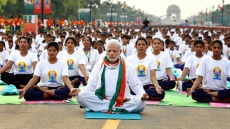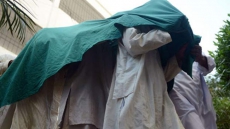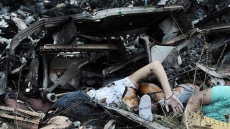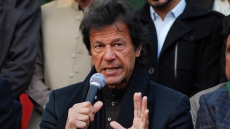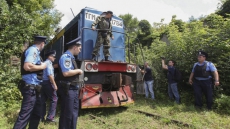Some officers of the Central Intelligence Agency (CIA) used brutal techniques on terrorist suspects and there was no proof of useful information yielded from the interrogation, the chief of the US spy agency has said.
John Brennan, in a rare televised press conference held at the CIA headquarters in Langley, Virginia, Thursday acknowledged "unauthorised" and "abhorrent" practices by some officers, saying it was "unknowable" whether the so-called enhanced interrogation techniques produced key intelligence, Xinhua reported.
"We fell short when it came to holding some officers accountable for their mistakes," Brennan said, adding that the use of coercive methods has a strong prospect for resulting in false information because "if somebody is being subjected to a course of techniques, they say something to have those techniques stopped".
"And so there have been a lot of studies done over the years about the value of different types of interrogation methods and whether or not coercive methods can lead to useful information that couldn't otherwise be obtained," the CIA chief noted.
But Brennan asserted the CIA "did a lot of things right" in a time when there were no easy answers, saying CIA officers were acting under Bush administration guidance that harsh techniques were legal.
The CIA was brought to sharper focus following the release Tuesday of a Senate Intelligence Committee report, in which details were offered about the agency's brutal interrogation methods over the years after the Sep 11, 2001, terrorist attacks on the US mainland.
Among the methods were water-boarding, sexual threats and sleep deprivation, though the report found the techniques largely ineffective and poorly managed.
The revelations have sparked outrage and demands for justice around the world.
Juan Mendez, the UN's special rapporteur on torture and other cruel, inhuman or degrading treatment or punishment, said the use of torture when interrogating prisoners captured in the US "war on terror" has damaged the country's moral high ground and set back the global fight against the condemnable practice.
"The example set by the United States on the use of torture has been a big drawback in the fight against such practice in many other countries throughout the world," he said.
"We have lost a little bit of the moral high ground," Mendez added. "But it can be regained and it should be regained."
He said the torture programmes had made the matter of terrorism worse and provided "a breeding ground for more terrorism".
"As a nation that has publicly affirmed its belief that respect for truth advances respect for the rule of law, and as a nation that frequently calls for transparency and accountability in other countries, the United States must rise to meet the standards it has set both for itself and for others," Mendez said.

